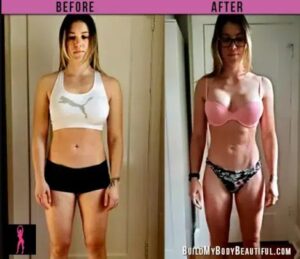Is Fasted Cardio Good for Weight Loss?
For those unfamiliar with the term, fasted cardio is doing your cardio workout before eating anything in the morning. I know there are many fitness fanatics who skip breakfast because they have difficulty eating right after getting out of bed. I’m definitely not one of them. I’ve been a major fan of early morning meals every since I was a kid waking up Saturday morning to my dad cooking bacon and eggs, just before the cartoons came on.
Fast forward to several years–ok make that a couple of decades–when I found myself needing to whittle off a couple more pounds for my first bikini competition. I was enjoying my six small meals a day and doing just fine with the afternoon cardio sessions, but as the competition neared, I needed some extra help to lose that last bit of fluff. Next thing I knew, I found myself on the treadmill at the crack of dawn, with my empty, growling tummy drowning out the morning news on the gym’s TV.
You may be hungry for some boosted fat loss and wondered about the benefits of exercising on an empty stomach. The truth is there are pros and cons to this strategy:
Sunrise fasted cardio sessions may be a powerful weight loss technique
While there is conflicting scientific evidence, the theory behind fasted cardio is that it forces your body to use stored fat rather than carbohydrates from a recent meal. As you exercise, your body looks for fuel to provide energy, with the preferred source being carbs. If that source isn’t readily available, the fasted hypothesis suggests the body is forced to burn stored fat. This means more fat, including fat from stubborn areas like abdomens and thighs, gets incinerated during your gym time than if you had fueled up with breakfast.
While the jury may still be out on the science behind this theory, many fitness professionals, competitors and coaches keep fasted cardio in their training arsenal. Despite a lack of hard data to prove its case, it’s hard to argue with results!
Fasted cardio doesn’t necessarily mean an overnight fast. If you start your cardio after a long weight training session, you’re essentially working out in a fasted state. Another strategy is to simply do a carb fast: eating a carb-free meal before your training to ensure fat is burned instead of carbs.
The bad news: Fasted cardio feasts on muscles
You’ll often hear bodybuilders scoff at the idea of fasted exercise because it can be detrimental to hard-earned muscle gains. According to scientist and competitive bodybuilder Layne Norton, the hormone cortisol, is elevated during fasted cardio, which negatively impacts muscle growth. Since cardio increases cortisol levels, this can become a recipe for muscle atrophy (read: shrinkage). Furthermore, starting out your day with fasted cardio can instinctively lead you to preserving your energy throughout the day (e.g. that escalator next to the stairs seems suddenly more enticing).
Don’t even think about hitting the squat rack before breakfast
Fasted weight training is an exercise in futility. When you’re lifting weights, your aim is to grow muscles, so pumping iron on an empty stomach will do far more harm than good. You need to properly fuel your weight training with the right macro nutrients so that your muscles recover and grow stronger. Even if fat loss is your goal, developing muscle mass will help improve your metabolism and give you an overall leaner body composition.
As you digest all this information, you may be wondering if a pre-breakfast run is right for you. For fitness competitors, fasted cardio is often used as a final effort to get stage ready. Others find it a useful way to push past a weight loss plateau. In either case, I recommend only using it for a limited time and/or as a last resort. If you don’t feel you’re losing fat as quickly as you want, check if your diet is on point first. Techniques such as carb cycling may be a better option. For early-birds who don’t like to eat right after waking, empty-stomach workouts might simply be a matter of preference.
If you want to go for it, consider using an amino acid (BCAA) supplement during your workout to protect muscle mass and for an energy boost. Your cardio session should be a low or moderate steady state pace to stay in the fat burning zone and avoid over-exertion. Keep the above advice in mind if you’re hitting the gym later in the day and are feeling the start of hunger pangs.
These days, you’ll find me getting up extra early to start my day with a caffeinated protein shake or boiled eggs on Ezekiel toast. But, with an eye on another competition this fall, who knows what will come first: the treadmill or the egg?
Need some expert advice on for weight loss? Connect with me to schedule a consultation call and I will be happy to get you started!





